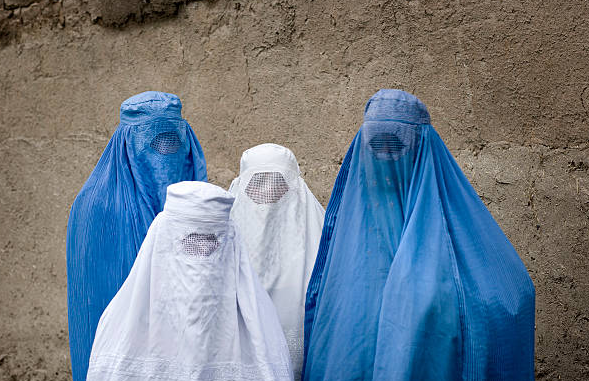
Recent findings from a report by the UN mission in Afghanistan have shed light on the pervasive fear and sense of insecurity among Afghan women when venturing outside their homes alone.
This fear is primarily attributed to the strict decrees and enforcement campaigns instituted by the Taliban regarding clothing and the requirement for male guardianship.
Unveiling the Veil of Fear and Insecurity
The Taliban’s ascension to power in 2021, following the withdrawal of US and NATO forces, marked a turning point for Afghan women.
Despite initial assurances of a more moderate rule, the Taliban swiftly implemented stringent measures, including barring women from various aspects of public life and limiting girls’ education to the sixth grade.
One of the most significant challenges faced by Afghan women is the restriction on their mobility and access to essential services.
The Taliban mandate that women must be accompanied by a male guardian, known as a mahram, when leaving their homes, severely constraining their independence and freedom of movement.
Failure to comply with these regulations often results in arrest, harassment, or intimidation by the Taliban’s morality police, the Vice and Virtue Ministry.
The UN report highlights the profound impact of these restrictions on women’s daily lives, with over half of those interviewed expressing feelings of fear and vulnerability when leaving their homes unaccompanied.
Even when accompanied by a male guardian, women face additional stress and limitations, as they are often criticized for deviating from prescribed routes or engaging in activities deemed unnecessary.
Read more: Firefighters Injured In Los Angeles Explosion, 2 Critical

Afghan Women’s Struggle Against Taliban Oppression
The Taliban’s insistence on enforcing such decrees under the guise of upholding Islamic principles has been met with skepticism and condemnation from human rights organizations.
Critics argue that these measures not only infringe upon women’s rights but also perpetuate a climate of fear and intimidation aimed at restricting their participation in public life.
Heather Barr of Human Rights Watch aptly describes Afghan women’s apprehension as “damning and devastating,” emphasizing the urgent need for international attention and action to address this crisis.
Despite ongoing discussions and diplomatic efforts, including the upcoming UN-convened meeting in Doha, the Taliban’s refusal to participate and their insistence on maintaining sole representation underscore the challenges ahead in advocating for women’s rights in Afghanistan.
As the international community grapples with the complex political dynamics surrounding Afghanistan, it is essential to prioritize the protection and empowerment of Afghan women.
The UN envoy’s warning to the Taliban regarding the implications of their treatment of women reflects a broader recognition that progress towards peace and stability in Afghanistan hinges on ensuring gender equality and respect for human rights.
Read more: Florida City Settles Lawsuit With Man Wrongly Imprisoned For 1983 Murder

